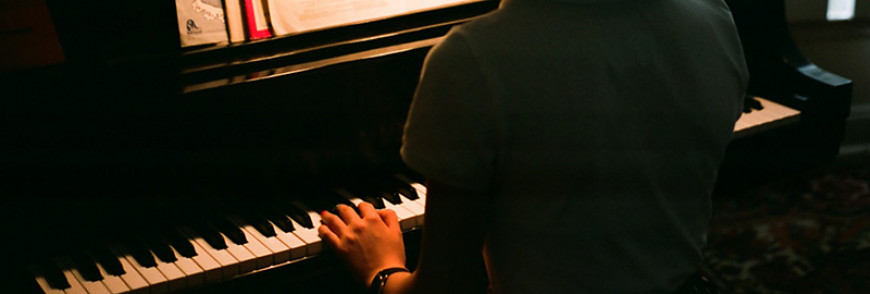Music Instruments: Buying Vs. Renting

| Lessonface Parents Guide |
|---|
Other great reading:
|
The use of a quality instrument in good playing condition is vital to the success of every beginning music student. Thousands of parents each year face decisions like whether to buy or rent an instrument, and whether to obtain a new or used instrument. Below, we take a closer look at these choices and what may work for you and your child.
Renting an Instrument
Instruments appropriate for school band use or beginner child’s may not be inexpensive according to your budget, and it can be difficult to tell which model will be right for the long term until your child has played at least few months. In some cases, your child’s school may have instruments available to borrow for the school year, so it may be worth asking about this possible option before renting an instrument. In any event, renting the instrument gives you and your child time to see whether your child will sustain interest in the instrument, and whether the chosen instrument is the best fit for your family. This option can be especially helpful when you know your child will need to switch to a larger size of the chosen instrument at a future date. For example, your child might start with a ¼ sized violin and then switches to a full sized violin as he or she grows.
Many reputable music stores have a no risk rental plan that allows you to try an instrument for a period of a few months with the option of switching instruments at a later point. You may also have to option of renting month-to-month, although doing so may cost more than having a longer contract.
In addition, many instrument rental plans include repair insurance, covering some types of breaks and adjustments during the rental period. This type of plan can be especially important for a beginner who may still be developing an understanding of how assemble and/or maintain an instrument.
Popular band instruments such as trumpet, trombone, flute and clarinet, typically rent for about $15-30 per month. Other perhaps harder to find instruments such as tuba, French horn, and bassoon may cost more.
Buying an Instrument
For those more certain about the instrument, it can make a lot of sense to buy it. For many instruments, the purchase price can be cheaper than a year-long rental. Another advantage of buying an instrument is the sense of responsibility it can instill in your child when he or she is taught to care for, respect, and play the instrument. This can be an important lesson, whether buying new or used instruments, because you may be able to resell the instrument later, should your child lose interest in the instrument or particular model, and some instruments can retain resale value if cared for properly.
When considering purchasing an instrument, it is worthwhile to check first with your child’s music teacher (or another trusted source) to ensure the particular instrument is a good choice in your circumstances. Before some major purchases, you may wish to take the instrument to a trusted local music repair shop to ensure it is in acceptable condition for the price.
Renting to Own
If you can’t decide between renting and buying an instrument for your child, another option can be renting to own. You can start by renting an instrument and then the rent paid is applicable to the later purchase of the instrument. This is one popular way for students to get started with instruments.
Getting Down to Business
Obtaining the right instrument is an important decision that can have an impact on your child’s chances for success. Often bargains can be found in the new or used instrument market, so this option may be worth considering if you have some time to research it. Also, do not hesitate to ask your music teacher, or friends who have knowledge, about particular beginner or student models for your child. As with any substantial purchase, do your research before entering into the transaction and consider your alternatives. For general informational purposes only, we list below some very general estimated ranges of purchase and rental prices for some popular types of instruments. Of course, we cannot guarantee the accuracy of these ranges, but they may be helpful in generally considering the first step choosing an instrument for your child. Purchase and rental prices can vary widely depending on various market conditions and your particular location.
| Instrument | Buying New Price | Rental Price |
|---|---|---|
| Acoustic Guitar | $ - $$ | $10 - $40 per month |
| Electric Guitar | $ - $$ | $10 - $40 per month |
| Violin | $ - $$ | $20 - $40 per month |
| Viola | $ - $$ | $20 - $40 per month |
| Cello | $$ - $$$ | $35 - $48 per month |
| Upright Bass | $$$ - $$$$ | $60 - $70 per month |
| Drums | $ - $$ | $20 - $40 per month |
| Flute | $ - $$$ | $10 - $25 per month |
| Clarinet | $ - $$$ | $10 - $25 per month |
| Saxophone | $$ - $$$ | $20 - $30 per month |
| Trumpet | $ - $$ | $15 - $30 per month |
| Trombone | $ - $$ | $15 - $30 per month |
| Oboe | $$$ - $$$$ | $25 - $40 per month |
| Bassoon | $$$$ - $$$$$ | $70 - $200 per month |
| French Horn | $$$ - $$$$ | $40 - $60 per month |
| Tuba | $$$ - $$$$$ | $60 - $90 per month |
Depending on where you buy your instrument, the price will vary greatly.
$ = under $200; $$ = $200-$500; $$$ = $500-$1000; $$$$ = $1000-$2500; $$$$$ = over $2500




